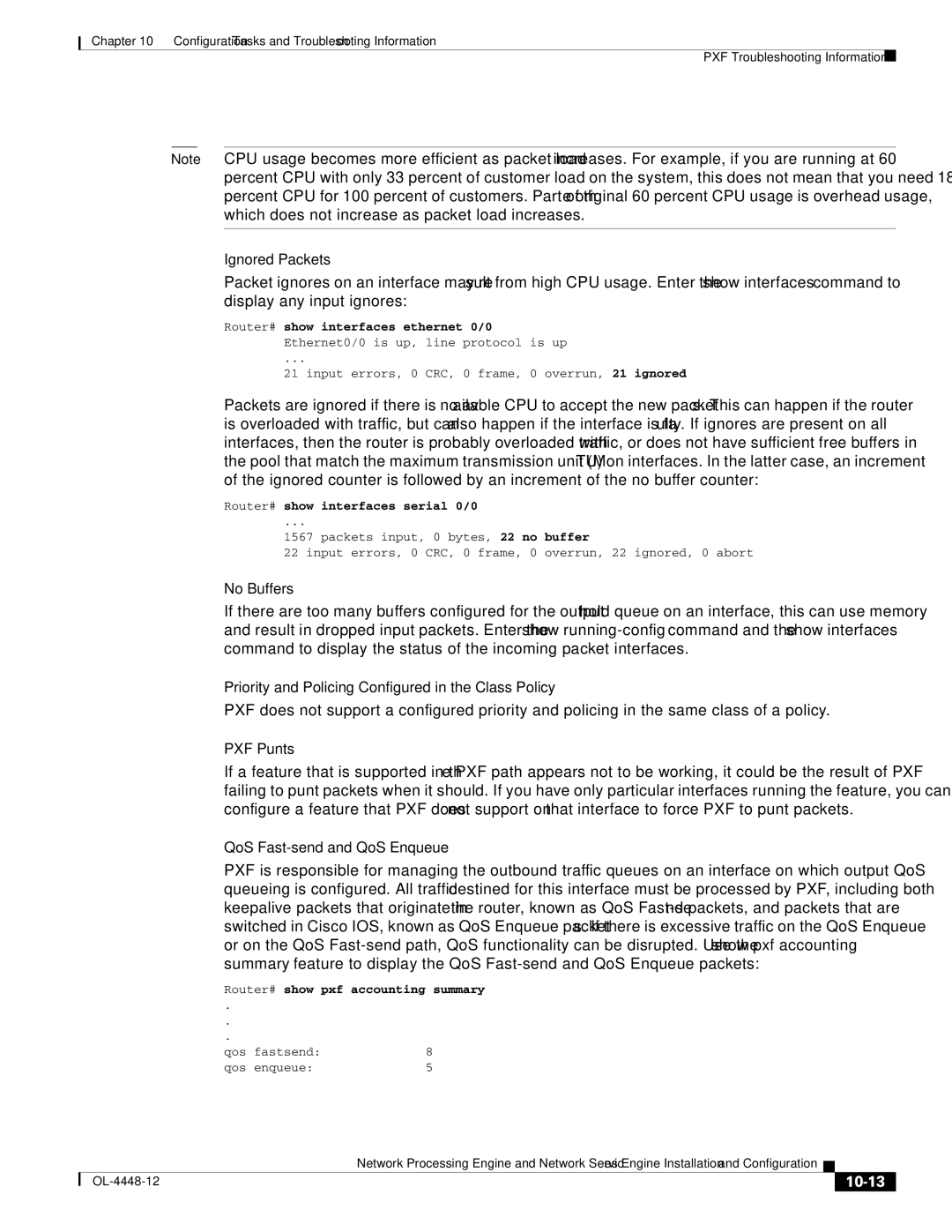
Chapter 10 Configuration Tasks and Troubleshooting Information
PXF Troubleshooting Information
Note CPU usage becomes more efficient as packet load increases. For example, if you are running at 60 percent CPU with only 33 percent of customer load on the system, this does not mean that you need 180 percent CPU for 100 percent of customers. Part of the original 60 percent CPU usage is overhead usage, which does not increase as packet load increases.
Ignored Packets
Packet ignores on an interface may result from high CPU usage. Enter the show interfaces command to display any input ignores:
Router# show interfaces ethernet 0/0
Ethernet0/0 is up, line protocol is up
...
21 input errors, 0 CRC, 0 frame, 0 overrun, 21 ignored
Packets are ignored if there is no available CPU to accept the new packets. This can happen if the router is overloaded with traffic, but can also happen if the interface is faulty. If ignores are present on all interfaces, then the router is probably overloaded with traffic, or does not have sufficient free buffers in the pool that match the maximum transmission unit (MTU) on interfaces. In the latter case, an increment of the ignored counter is followed by an increment of the no buffer counter:
Router# show interfaces serial 0/0
...
1567 packets input, 0 bytes, 22 no buffer
22 input errors, 0 CRC, 0 frame, 0 overrun, 22 ignored, 0 abort
No Buffers
If there are too many buffers configured for the output hold queue on an interface, this can use memory and result in dropped input packets. Enter the show
Priority and Policing Configured in the Class Policy
PXF does not support a configured priority and policing in the same class of a policy.
PXF Punts
If a feature that is supported in the PXF path appears not to be working, it could be the result of PXF failing to punt packets when it should. If you have only particular interfaces running the feature, you can configure a feature that PXF does not support on that interface to force PXF to punt packets.
QoS Fast-send and QoS Enqueue
PXF is responsible for managing the outbound traffic queues on an interface on which output QoS queueing is configured. All traffic destined for this interface must be processed by PXF, including both keepalive packets that originate in the router, known as QoS
Router# show pxf accounting summary
. |
|
. |
|
. |
|
qos fastsend: | 8 |
qos enqueue: | 5 |
|
| Network Processing Engine and Network Services Engine Installation and Configuration |
|
| |
|
|
| |||
|
|
|
|
| |
|
|
|
| ||
